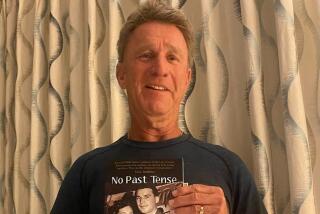Lucy Dawidowicz; Author, Holocaust Historian
- Share via
Lucy S. Dawidowicz, a distinguished historian whose accounts of the Holocaust are considered among the definitive works of that atrocity, died Wednesday.
She was 75 when she died of unreported causes in New York City, where she held a chair in the interdisciplinary studies of the Holocaust at Yeshiva University.
“A Holocaust Reader” and “The War Against the Jews” were eyewitness accounts of the Holocaust, gleaned from her early years and postwar travels to Europe, where she helped survivors of Nazi concentration camps rebuild schools and libraries.
Those books and others, including the 1989 “From That Place and Time: A Memoir, 1938-47,” were based on interviews and research with survivors and her own recollections of Vilna, Poland, where she had lived in her youth.
The daughter of Polish immigrants, she was born in New York in 1915. She moved to Poland while in her 20s and managed to escape Nazi invaders because she had an American passport.
At the end of the war she came back to Europe, she told Publisher’s Weekly last year in connection with the publication of “From That Place and Time,” hoping to establish a center for Yiddish culture.
When she found that Jewish culture and life had been nearly extinguished by the death camps, she helped recover some of the Hebrew literature seized by the Germans and returned to the United States to write and study.
Mrs. Dawidowicz, who attended Hunter College and Columbia University, was often at the center of disputes within the Jewish community over the nature of the Holocaust and the responsibility of American Jews for not doing more to prevent it.
She was critical of historians who postulated that European Jews were too passive and cowardly in allowing the Holocaust to occur.
She argued that it was unfair to judge in hindsight those who actually went through the experience. She also believed that European Jews were too isolated and too militarily and materially weak to overcome the Germans.
Her central work, “The War Against the Jews,” argues that destruction of her people was not a byproduct of Germany’s World War II strategy but a central force in Hitler’s plan to conquer Europe.
She had met her husband, Szymon, while in Vilna. He escaped from Poland and died in 1979.
More to Read
Sign up for Essential California
The most important California stories and recommendations in your inbox every morning.
You may occasionally receive promotional content from the Los Angeles Times.













